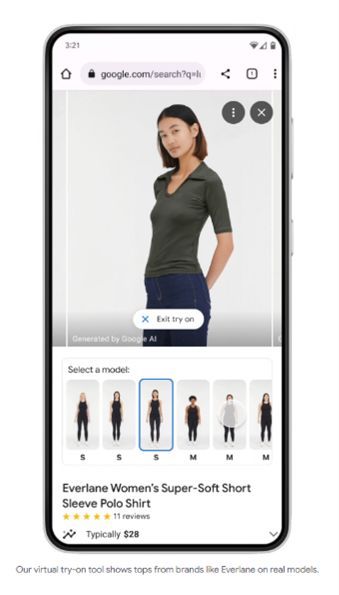- in United States
- within Real Estate and Construction, Consumer Protection and Cannabis & Hemp topic(s)
In the fashion industry, control over image and likeness is a model's currency.
On June 19, New York imposed new consent requirements for the use of generative artificial intelligence (AI) tools that substantially replicate or replace a model's appearance or performance. The law explicitly excludes "routine photographic edits such as color correction, minor retouching, or other standard post-production modifications."
The New York Fashion Workers Act, Senate Bill S9832, seeks to address disparities in bargaining power between models, on the one hand, and agencies, retailers, clothing designers, advertisement agencies, photographers, and other fashion industry players on the other.
According to The Model Alliance, a New York nonprofit advocating for fashion workers' rights, model representation agreements often grant broad power of attorney to modeling agencies, authorizing them to "accept payments on behalf of the model, deposit checks and deduct expenses, as well as book jobs, negotiate the model's rate of pay, and give third parties permission to use the model's image, while having no obligation to show the model the agreements negotiated on their behalf with their clients or act in the model's best interests."
The new law creates a series of requirements for model management companies (i.e., modeling agencies) and clients, defined to include retail stores, manufacturers, clothing designers, advertising agencies, publishing companies, and any others who receive modeling services from a model or an intermediary.
Model management companies must:
- Register with the NY Department of Labor by June 19, 2026, or face civil penalties between $500 and $700, depending on the number of employees. Registration must be renewed every two years. Copies of the registration certificate must be posted in the company's office and on its website.
- Observe a fiduciary duty to the models they represent when providing advice or representing, negotiating, or managing their finances. A company may be held liable for intentionally or negligently taking advantage of a model or providing bad advice.
- Use best efforts to book models for paid work.
- Conduct due diligence to ensure no model's job presents an unreasonable risk of danger.
- Establish and communicate policies for combating harassment and abuse.
- Receive models' written consent before creating or using nude or sexually explicit images.
- Provide models with a memo indicating key terms of the job (e.g., scope of work, pay rate, payment terms, usage, incurred expenses, and other expectations). A final agreement must be shared with the model one week after the job, at the latest.
- Not charge models signing fees or deposits.
- Receive models' written approval for all fees and expenses. They must also provide an itemized list of expenses and how they were calculated. Finally, they cannot charge models interest on earnings.
- Receive models' written consent before charging them for travel or visa-related costs.
- Inform models of financial arrangements between themselves and clients.
- Notify models they formerly represented if they collect royalties on their behalf.
- Not require models to provide power of attorney as a contractual condition. If a model consents to providing agencies with power of attorney, it must be limited to their modeling work.
- Limit agency contracts to three-year terms and give models a choice to renew their contracts.
- Not charge models more than a 20% commission on their earnings.
- Protect models from harassment and discrimination.
Clients must:
- Provide overtime pay equivalent to time and a half when work exceeds eight consecutive hours.
- Provide a 30-minute meal break when work exceeds eight consecutive hours.
- Only offer models jobs that do not pose an unreasonable risk of danger.
- Establish and communicate policies for combating harassment and abuse.
- Receive models' written consent before creating or using nude or sexually explicit images.
- Carry liability insurance to cover models' health and safety.
- Allow models to bring an agent, manager, chaperone, or other representative to their jobs.
A model's express permission is also now required before modeling agencies or clients can create their digital replicas. It is unclear what will happen to digital replicas (e.g., removal, deletion, etc.) created and used before the law became effective or where models revoke consent to their continued or future use.
Generative AI Uptake in the Fashion Industry
Companies are supplementing their marketing and advertising campaigns with digital replicas of human models and computer-generated models.
Digital Replicas of Human Models
Generative AI tools create new content (e.g., text, images, audio, and video) from learned patterns and structures in training data. Digital replicas are virtual avatars, or three-dimensional digital representations of people. Google's AI-enabled virtual try-on feature allows users to see how apparel looks on human models of varying body types, skin tones, ethnicities, and hair types.

Creating these 'twins' requires extensive data collection to accurately reflect a model's physical characteristics and realistically simulate their movements, mannerisms, and overall likeness. In recent years, models have been asked to submit 3D body scans, with some later finding out they unknowingly signed away rights to their body image.
AI body scans and digital replicas can streamline the resource-intensive process of photographing human models in different outfits from various angles. Companies can now superimpose apparel onto models' avatars and modify their physical appearances (hairstyles, makeup, etc.) without booking the human models themselves for additional photoshoots. Fashion brand H&M is planning to create 30 "digital twins" by the end of the year.
Before the NY Fashion Workers Act, organizations could use models' AI body scans and digital replicas for additional marketing campaigns and product launches without consent, credit, or compensation.
AI-Generated Models
Companies are also experimenting with AI-generated models. Unlike digital replicas, AI-generated models are not necessarily intended to resemble a particular human model. However, when a generative AI tool is trained on a specific model's image or likeness data (whether deliberately or through web-scraping), the tool may produce an output (e.g., audio or visual) that very closely resembles that person. Actress Scarlett Johansson threatened to sue OpenAI for violating her publicity rights because its AI voice assistant "Sky" sounded "eerily similar" to her voice. The system was released nine months after she declined to license her voice to the company.
Similarities between human and AI-generated models are most likely to occur when users request content featuring specific people or those with certain characteristics (race, gender, height, weight, etc.). In some cases, these text-to-image tools have been found to amplify biases and stereotypes.
In 2017, Shudu, the 'world's first digital supermodel,' became an overnight sensation, sparking fierce debate about diverse representation and outsourcing human jobs in the modeling industry. The Diigitals, the all-digital modelling agency behind Shudu, now has seven models who have been featured in campaigns for various luxury brands and on the covers of Vogue, Elle, and Balmain. Much like a traditional fashion contract, the agency collects money for these AI-generated models appearing in digitally created photo shoots and fashion shows.
FashnAI, a virtual try-on technology, offers AI photo generation and editing, allowing users to create and swap models and backgrounds without disturbing the outfit, pose, or picture quality. Lalaland.ai, an AI digital model studio, similarly enables users to create unique avatars "inspired by real people, generated with AI" in under five minutes. The studio claims AI modeling tools allow designers to improve online shopping experiences and increase demographic representation in fashion.
In 2023, Levi Strauss, a Lalaland.ai partner, announced it would use AI technology to showcase models with a wider range of body types (while also assuring it would not scale back its live photo shoots or use of diverse human models). Some industry commentators are skeptical of rationales based on increasing diverse representation, claiming brands are using generative AI to simply cut costs.
The New York Fashion Workers Act
The Fashion Workers Act is a labor law which, according to its sponsors, will "protect fashion models from being financially abused and having their images used without their consent."
Effective June 19, 2025, retailers ("Clients") must "Obtain clear written approval from a model before creating or using a model's digital replica," which is defined to mean "a significant, computer-generated or artificial intelligence-enhanced representation of a model's likeness, including but not limited to, their face, body, or voice, which substantially replicates or replaces the model's appearance or performance, excluding routine photographic edits such as color correction, minor retouching, or other standard post-production modifications." The written approval must detail the scope, purpose, rate of pay, and length of time the replica will be used.
Similarly, the law will require modeling agencies to receive models' written approval for the creation or use of their digital replicas, separate from their representation agreement. The power of attorney provisions must also now be an optional component of model management agreements that can be terminated by models at any time and for any reason.
Model management companies that meet the following requirements can request an exemption from the law that is valid for two years: (1) domiciled outside New York, (2) registered or licensed in another state with the same or greater requirements than the Act, and (3) do not maintain an office in New York or solicit clients in New York.
The Act will be enforced by the Department of Labor and the Labor Commissioner, who can impose $3,000 civil penalties for first-time violations and $5,000 per subsequent violation.
The Act provides New York models with a private right of action. The state Attorney General can sue clients and model management companies engaged in repeated fraudulent or illegal acts. Aggrieved models can file complaints with the commissioner for up to six years after the alleged violations.
New York's Freelance Isn't Free Act, SB S5026, which took effect in August 2024 and has been subject to extensive litigation, may provide a preview of private litigation under the NY Fashion Workers Act. It requires a written agreement between companies and independent contractors who make over $800 within a 120-day period, and that full and complete payments be made within 30 days of the completion of services if no due date is specified in the agreement. Plaintiffs with successful complaints are entitled to $250 in statutory damages. The NY Labor Commissioner can also sue for wage claims and the NY Attorney General can bring civil actions with remedies including injunctive relief and civil penalties up to $25,000.
Mitigating Risk
Regulated parties should consult with experienced counsel for tailored guidance and consider:
- Pausing use of all models' likenesses in "digital replicas," defined to include computer-generated or AI-enhanced representations, until consent is obtained.
- Redrafting model releases to remove language that conflicts with or contradicts the Act's new consent requirements for digital replicas.
- Identifying current and proposed uses of AI or digital modeling tools and amending releases with impacted models consistent with the above requirements.
- Updating AI use policies to ensure future compliance by employees and/or third-party vendors.
- Requiring modeling agencies to confirm that they obtained written approval for the creation of digital replicas, and to provide copies of those agreements.
Absent current or future use of digital replicas, the law does not require any new or specific terms to be added to existing model releases. However, adding additional terms to releases or proactively obtaining consent from existing and new models may mitigate risks for companies going forward.
What's Next?
The NY Fashion Workers Act is part of a larger trend within the state and nation.
Two related California laws went into effect on January 1, 2025. CA AB 2602, "Contracts against public policy: personal or professional services: digital replicas," requires specific affirmative consent before digital replicas of an individual's voice or likeness can be used for personal or professional work. CA AB 1836, "Use of likeness: digital replica," prohibits the use of digital replicas of deceased personalities without permission from the decedent's estate.
New York lawmakers are considering bills (SB S1228A / AB A6068) that would require all AI-generated images used in TV, print, or digital advertising to be clearly labeled as such. Given the increasing difficulty in detecting AI-generated works, the proposed laws are designed to help consumers more readily and easily understand whether advertisements feature real or fictional people. If enacted, these laws would add further requirements to retailers' use of AI modeling tools.
In response to impersonation and misuse of digital replicas, such as deepfakes, Federal lawmakers have reintroduced legislation designed to codify and safeguard individuals' rights in their voice and visual likeness. Following deepfake robocalls impersonating then-president Joe Biden, the Federal Communications Commission issued a ruling making AI-generated voices in robocalls illegal.
Conclusion
The New York Fashion Workers Act and related state legislation governing digital replicas and deepfakes are a direct response to broader calls for protection against unauthorized use of individuals' names, images, and likenesses.
The content of this article is intended to provide a general guide to the subject matter. Specialist advice should be sought about your specific circumstances.



